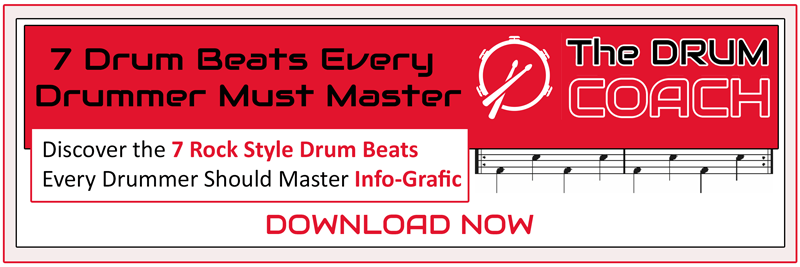Are you itching to get a drum kit as a beginner but not sure when the right time is? In this video, I’ll share a quick guide to knowing when to take that big step—and how you can build solid drumming skills even before owning a kit. Stick around, because this could save you some time, money, and frustration!
Today, we’re answering a question every beginner asks: When should I get my first drum kit? While it’s exciting to jump straight into playing on a real kit, the truth is, you don’t need one right away to become a great drummer. In fact, the time you spend building foundational skills and theory without a kit can be just as valuable as the time you spend behind the drums. Let’s break it all down and figure out the best approach for you!
As a beginner, starting without owning your own drum kit can actually set you up for long-term success—if you approach it with the right disciplined mindset and tools. Here’s how.
First, focus on building a strong knowledge base. A solid understanding of drumming, music theory, and fundamentals is the key to developing your skills later. Resources such as The Drum Coach Blog and the Modern Drumming Concepts book are great places to start. Read them, study them, and revisit them until you fully grasp the general concepts. This foundation will make a massive difference when you finally get behind a kit. This blog should work hand in hand with one or more good music theory books. Some of these will be scattered around the Durm Coach Blog website.
Next, let’s talk about visualization. It might sound unusual, but imagining yourself playing a drum kit can be as effective as practicing on a real one. Stanford University studies have shown that the brain doesn’t distinguish much between actually performing an action and vividly imagining it. By visualizing your drum beats and patterns, you can improve coordination and timing without ever touching a drumstick. And above all, understanding what and where to play something.
Of course, self-discipline is a key component of all success, in any area. Sticking to a self-guided practice plan without a kit can be challenging, but the rewards are worth it. Use your imagination, practice hand and foot coordination exercises on a practice pad or even a sturdy surface, and focus on building your rhythmic awareness and understanding.
Another great option is to take lessons. Let your teacher know you don’t have a drum kit yet but are fully committed to practicing. Most teachers will be impressed by your discipline and dedication. They’ll provide exercises and tips tailored to your situation, making your progress even faster. But in general, drumming rudiments are a great starting place.
Now, when should you finally get a drum kit? If you’ve been practicing consistently in your imagination and with the basic rudiments for six months and have stuck with your routine, you’ve proven your commitment. At that point, getting a real drum kit is not only deserved but also well-timed. You’ll approach it with a deeper understanding of drumming, and with better habits, helping you make the most of your new gear.
So, when should a beginner get their first drum kit? The answer is simple: after you’ve spent time building your foundation of rudiments and theory, mastering the basics, and proving your commitment. Remember, patience and discipline are what separate good drummers from great ones.
In the next video, we’ll dive into another essential topic: Where’s the Best Place to Buy Drums? I’ll share tips on finding great deals, understanding drum quality, and making sure you invest wisely. Click the video on your screen to start watching, and let’s keep developing our drumming together!






